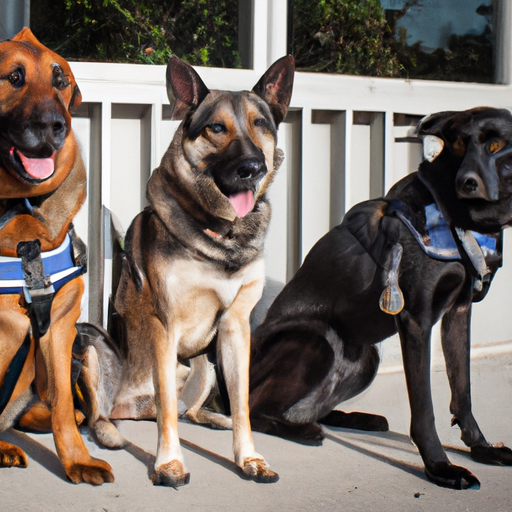In the world of law enforcement, not all heroes walk on two legs. In fact, some of the most effective members of police forces around the world have four legs, a tail, and a keen sense of smell. These brave animals are known as police dogs, or K9 units, and they play an integral role in maintaining law and order. Throughout this article, we’re going to delve deep into the breeds of dogs that police use, their specific roles, and their rigorous training process.
- Table of Contents
- A Brief History of Police Dogs
- Most Commonly Used Police Dog Breeds
- Roles of Police Dogs
- Training Process for Police Dogs
-
Frequently Asked Questions
-
Key Takeaways
- Police dogs have a long history, dating back to the early 20th century.
- German Shepherds, Belgian Malinois, and Labrador Retrievers are among the most commonly used breeds.
- Police dogs are trained in various roles, including detection, search and rescue, and tracking.
- Training a police dog is a rigorous and lengthy process.
A Brief History of Police Dogs
The use of dogs in police work dates back to the early 20th century in Ghent, Belgium. Recognizing their extraordinary sensory abilities, the local police force began training dogs for law enforcement. This innovative approach quickly spread around the world, and today, K9 units are an integral part of many police forces.
There’s an excellent article that provides a more in-depth history of police dogs if you’re interested in learning more. Now, let’s dive into the breeds that you’re likely to see in a K9 unit.
Most Commonly Used Police Dog Breeds
Different dog breeds excel in different areas and tasks. Here are some of the most common breeds used in police work:
-
German Shepherds: Known for their intelligence and versatility, German Shepherds are often the first breed that comes to mind when we think of police dogs. They excel in various roles, from search and rescue to detection and protection.
-
Belgian Malinois: Similar to German Shepherds in both appearance and skill set, Belgian Malinois are prized for their high energy levels and resilience.
-
Labrador Retrievers: While not as physically imposing as the previous two breeds, Labradors are renowned for their detection abilities, particularly in the realm of narcotics and explosives.
You can find more details about these top police dog breeds here.
| Breeds | Special Abilities |
|---|---|
| German Shepherds | Versatility |
| Belgian Malinois | High Energy |
| Labrador Retrievers | Detection |
Roles of Police Dogs
Police dogs are trained in several roles, each of which requires a unique skill set. Here are some of the key roles:
- Detection: These dogs are trained to detect substances such as drugs, explosives, and even digital devices. They use their exceptional sense of smell, which is thousands of times more sensitive than that of humans, to locate these items.
- Search and Rescue: In the aftermath of disasters or when people go missing, search and rescue dogs can be invaluable. They can cover large areas quickly and locate individuals by scent.
- Tracking: These dogs are used to track down suspects or missing persons. They can pick up on a specific person’s scent and follow it over long distances.
Training Process for Police Dogs
Training a police dog is a rigorous and lengthy process. It begins when the dogs are puppies and continues throughout their lives. The dogs are trained to obey commands, track scents, and perform their specific roles. They also undergo extensive socialization to ensure they can handle a variety of situations and environments.
This piece from One Top Dog provides some great insights into dog training principles that are also applicable to police dogs. Additionally, this article gives an overview of different dog breeds, including some that are used in law enforcement. And if you’re curious about how dogs’ incredible sense of smell plays into their police work, check out this explanation.
Frequently Asked Questions
- Q: How long does it take to train a police dog?
-
A: It typically takes 1-2 years to fully train a police dog, depending on the specific role and the breed of the dog.
-
Q: Can any breed of dog be a police dog?
-
A: While certain breeds are more commonly used due to their specific traits, theoretically any breed can be trained for police work. However, the breed must be suitable for the specific role.
-
Q: Do police dogs live with their handlers?
- A: Yes, most police dogs live with their handlers. This helps to strengthen the bond between the dog and the handler, which is crucial for their teamwork.
In conclusion, police dogs are an irreplaceable part of law enforcement agencies around the world. With their unique skills and unwavering dedication, these four-legged officers help to keep our communities safe.



